In a recent development, on July 29, the Department of Animal Health under the Ministry of Agriculture and Rural Development announced that the General Administration of Customs of China has agreed to the health certificate template for exporting monkeys from Vietnam to China.
According to regulations, to export monkeys to China, Vietnamese enterprises with demand must register with the Department of Animal Health, which will then consolidate and forward the information to the General Administration of Customs of China for their consideration and decision-making. Additionally, the monkeys exported to China must be captive-bred and cannot be wild-caught. They should also be born and raised in Vietnam for at least two years.
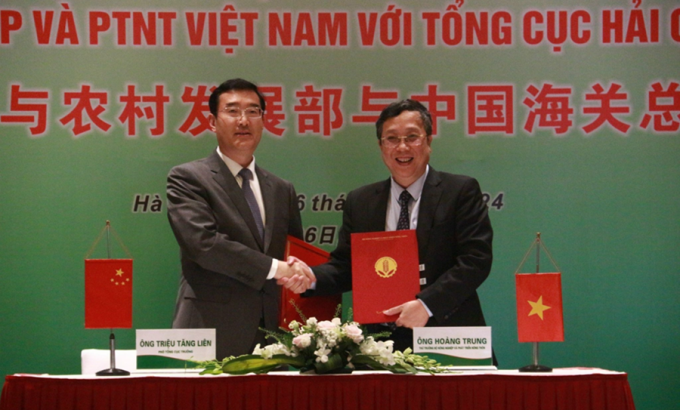
Deputy Minister of Agriculture and Rural Development of Vietnam, Hoàng Trung, and Deputy General Administrator of the General Administration of Customs of China, Triệu Tăng Liên, sign the Protocol on Monkey Exports. Image: Department of Animal Health
As per the Protocol, prior to export, the monkeys undergo quarantine at the original farm and are isolated for 30 days at a quarantine location approved by the Vietnamese authorities.
During this isolation period, the monkeys are clinically examined individually and confirmed to be in good health, showing no signs of infectious diseases.
Thus, monkeys become the latest commodity in Vietnam’s list of official exports to China. Previously, Vietnam had 14 commodities permitted for official export to the populous nation, including bird’s nests and bird’s nest products, sweet potatoes, dragon fruit, longan, jackfruit, mango, durian, watermelon, banana, mangosteen, and more.
Why Does China Want to Buy Monkeys from Vietnam?
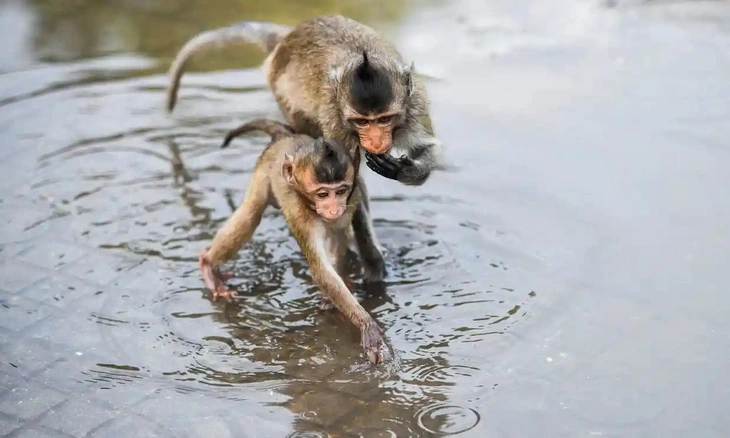
Long-tailed macaques are often used for research in laboratories. Image: Reuters
China, despite having a large population of monkeys, still seeks to import them from Vietnam for scientific research purposes. According to a representative of a southern monkey export company, the monkeys chosen for export to China are long-tailed macaques, and they are captive-bred, not wild-caught. They are purchased by China for scientific research.
In reality, long-tailed macaques are considered valuable in scientific research as test subjects and research objects, as well as for vaccine trials for humans. In the US market, each long-tailed macaque can fetch a price of up to $50,000 (over 1.2 billion VND).
According to Dân Việt, Ms. Bùi Thị Hà, Deputy Director of the Center for Nature Education (ENV), shared that she has just learned about Vietnam’s official export of long-tailed macaques to the Chinese market. This is good news for Vietnamese businesses and organizations permitted to breed monkeys for export, as it opens up new opportunities for people to prosper.
The Deputy Director of ENV emphasized that the export of long-tailed macaques is not a new development, as Vietnam has been exporting them to various countries, including the US, Japan, and, most recently, from 2019 to 2022.
Ms. Hà confirmed that the exported long-tailed macaques are used by importing countries for scientific research, drug testing, and vaccine development for humans. The reason for this is the close genetic relationship between monkeys and humans, making them ideal for such purposes.
According to CITES, the international convention on the trade of endangered species, the commercial trade of wild animals is prohibited, but there are no restrictions on the trade of captive-bred animals.
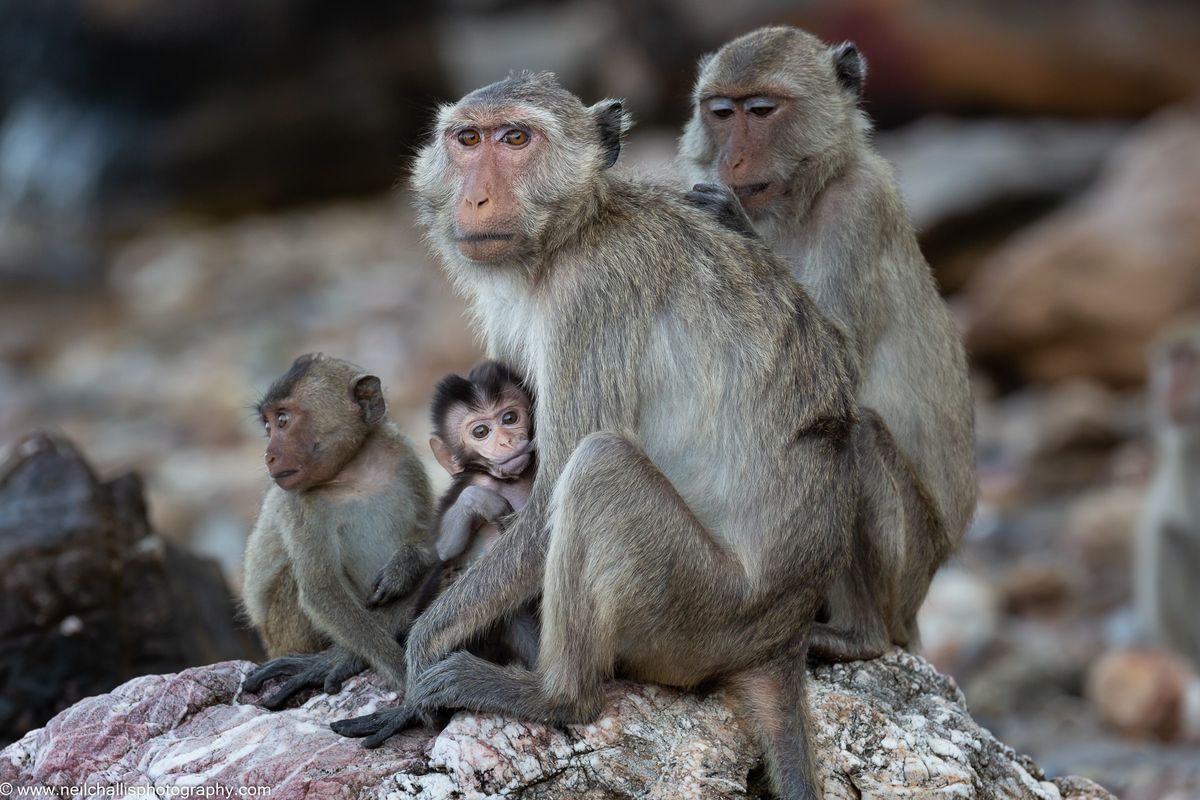
Long-tailed macaques are listed as endangered and rare species requiring strict protection in Vietnam’s Red Book. Image: The Scientist
The long-tailed macaque, with the scientific name Macaca Fascicularis, is also known as the crab-eating macaque. It belongs to the family Cercopithecidae and the order Primates. This species is found in India, Myanmar, China, Laos, Cambodia, Malaysia, Singapore, Indonesia, the Philippines, and Vietnam. In Vietnam, they are distributed from Thừa Thiên – Huế to Kiên Giang.
Long-tailed macaques typically inhabit primary and secondary forests, bamboo forests, sparse forests, riverbanks, coastal areas, and mangrove forests. Their diet consists mainly of fruits, seeds, tree shoots, leaves, and other plant and animal parts, including insects and frogs.
The gestation period for long-tailed macaques is 160-170 days, and the interval between births is about 13 months. They reach sexual maturity at around 50-51 months of age and have a lifespan of 37-38 years.
In the past, long-tailed macaques were common in the forests of southern Vietnam, but their population has declined significantly due to habitat destruction, deforestation, and hunting for meat, traditional medicine, and the pet trade.
Currently, long-tailed macaques are listed as endangered and rare species requiring strict protection in Vietnam’s Red Book and are also included in the CITES Appendices.
The Protocol on Quarantine Requirements for Monkey Exports from Vietnam to China was signed between the Ministry of Agriculture and Rural Development of Vietnam and the General Administration of Customs of China on June 6, 2024.
“Revolutionizing Agriculture: Integrating Scientific Innovations into Farming Practices”
“Minister of Agriculture and Rural Development, Le Minh Hoan, emphasized that businesses have the freedom to collaborate with multiple research institutes, and vice versa. This dynamic creates a marketplace where supply and demand drive innovation. Merely stopping at collaboration is insufficient for long-term success.”

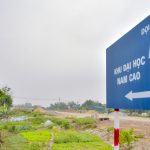

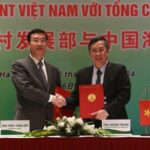

![[Photo Essay]: Experts, Managers, and Businesses Unite to Forge a Path Towards Sustainable Green Industry](https://xe.today/wp-content/uploads/2025/07/z678592918-218x150.jpg)












